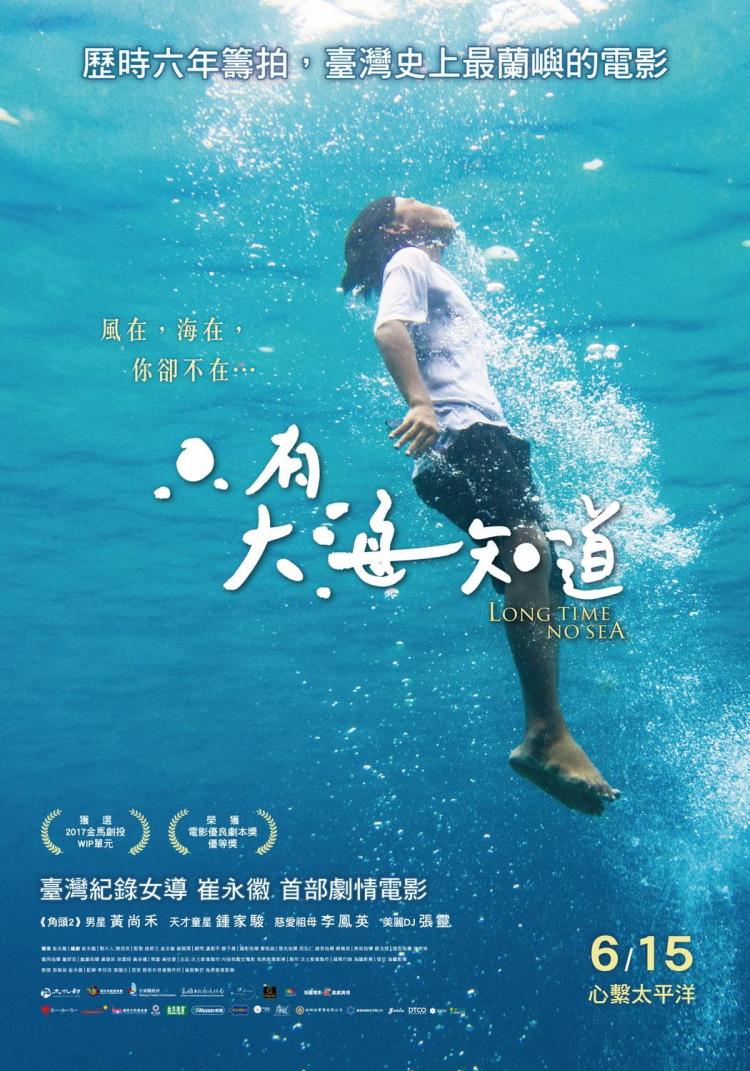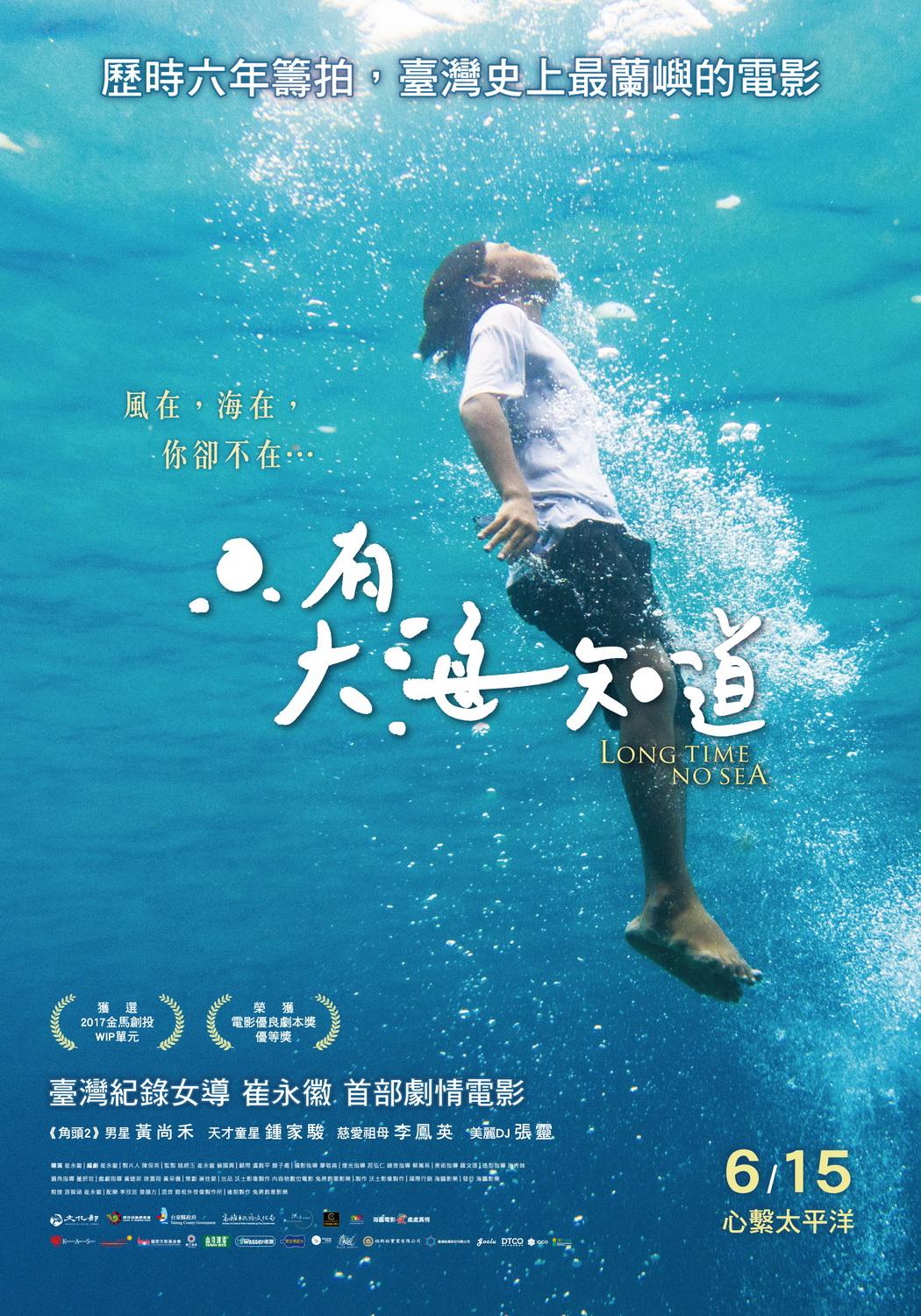 While Taiwanese cinema has not been an exclusively urban affair, Taipei stories have tended to loom large, perhaps presenting an unfairly uniform view of what is in reality an extremely diverse cultural landscape. The debut film from Heather Tsui (Tsui Yung-hui), Long Time No Sea (只有大海知道, Zhǐ Yǒu Dàhǎi Zhīdào) is set on one of Taiwan’s many islands and among the indigenous Tao whose culture is perhaps being gradually erased thanks to the increasing demands of the modern society and its constant pulls towards the city. A coming of age tale in more ways than one, Tsui’s debut is also a heartrending exploration of learning to cope with parental disappointment while also learning to reappreciate the beauty of island life which might before have seemed unexciting in contrast to city glamour.
While Taiwanese cinema has not been an exclusively urban affair, Taipei stories have tended to loom large, perhaps presenting an unfairly uniform view of what is in reality an extremely diverse cultural landscape. The debut film from Heather Tsui (Tsui Yung-hui), Long Time No Sea (只有大海知道, Zhǐ Yǒu Dàhǎi Zhīdào) is set on one of Taiwan’s many islands and among the indigenous Tao whose culture is perhaps being gradually erased thanks to the increasing demands of the modern society and its constant pulls towards the city. A coming of age tale in more ways than one, Tsui’s debut is also a heartrending exploration of learning to cope with parental disappointment while also learning to reappreciate the beauty of island life which might before have seemed unexciting in contrast to city glamour.
The hero, Manawei (Pangoyod Si / Zhong Jia-jin), lives alone with his grandmother (Feng Ying-li) and uncle while his father works as a taxi driver in Kaohsiung. The family is not hungry, but they live humbly and rely on money sent by Manawei’s father whose visits are becoming ever more rare. Missing his dad terribly, Manawei is sometimes resentful towards his grandmother, rejecting her home cooked island fare while longing for junk food and jealous of his friend whose mother, also working in the city, is doing much better and can afford to send him expensive toys as a kind of recompense for rarely being able to come home. Manawei, meanwhile, has been badgering his dad to buy him new shoes for the past few years (his own are so worn out he can no longer even glue the soles back together), and has been reduced to wearing flip flops to school.
The flip flops eventually get him into trouble with authoritarian schoolteacher Chung-hsun (Shang He-huang) who he first met rescuing his sunglasses from the harbour after Chung-hsun lost them in a bout of violent sea sickness. A middle-class city guy, ending up on Orchid Island isn’t something Chung-hsun was looking for and he’s intensely resentful of his new posting, particularly as it’s taken him away from a girlfriend he fears is losing interest. This is perhaps why he’s so hard on his new pupils, roughly berating Manawei for turning up late and in flip flops with no attempt to find out if there might be a reason for his behaviour. Needless to say, his approach backfires in making the boy reluctant to come to school at all in reinforcing his embarrassment over not being able to afford proper shoes.
Long Time No Sea is as much a coming of age tale for Chung-hsun as it is for Manawei as he begins to accept his position as a surrogate parent for his pupils, many of whom are living with relatives (or even alone, at least partially) while their mothers and fathers are away working in the city. This is perhaps why there are relatively few young adults on the island which is home mostly to children and the elderly as well as middle-aged returnees and the few who’ve decided they like the island life best such as radio host Chin-yi (Zhang Ling) who is currently supplementing her income by helping out pretty much anywhere else she’s needed. Chung-hsun only decides to help out with a school entry into a national “traditional dance” competition because he thinks it might improve his prospects of getting off the island faster, but, partly thanks to Chin-yi, gradually begins to embrace the rich cultural history of the Tao while bonding with the kids and coming to the conclusion that perhaps the simple life is indeed best.
Meanwhile, Manawei comes to learn a similar lesson in an ordinary, if heartbreaking, way as he gradually begins to wonder if his father has emotionally abandoned him to make a new life in the city. While his grandmother speaks to him in the local dialect, which he obviously understands, he replies to her mostly in Mandarin and knows he will one day leave the island if only to pursue his education. Longing for his father, he idolises the city with its 24hr junk food and bright flashing lights but most of all for the river of love his father told him flows through it. Finally visiting Kaohsiung he is abruptly confronted with its reality and finds himself warming to his island home with its taro root and longan fruit, no longer tempted by superficial modernity. While Chung-hsun’s assertion that “it’s better with just one road” might be somewhat restrictive if not didactic, it is also a tribute to a simpler, more honest way of life in contrast to city duplicity and empty ambition. Beautifully photographed and evocatively scored, Long Time no Sea is an important window into the little seen indigenous culture of the Tao as well as into the economic realities of modern living and the painful processes of growing up no matter how old you are.
Long Time no Sea was screened as part of the Taiwan Film Festival UK 2019.
Original trailer (English subtitles)
